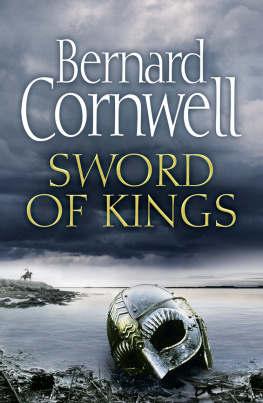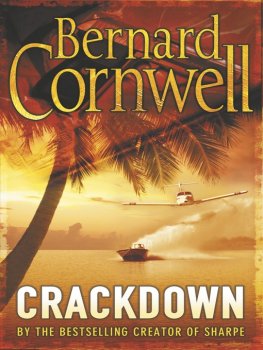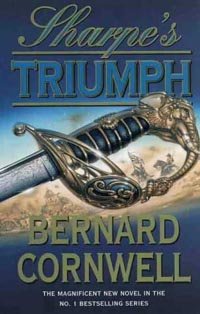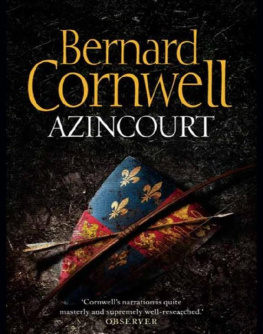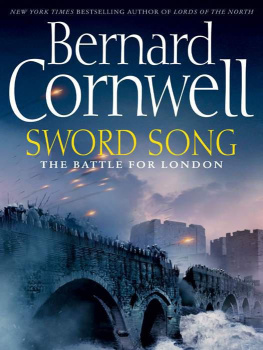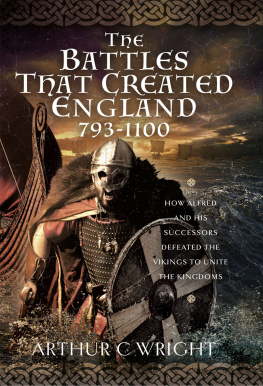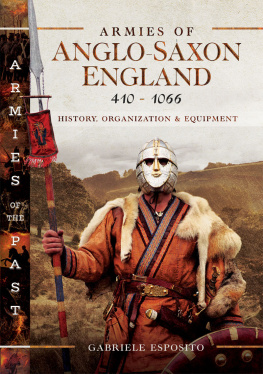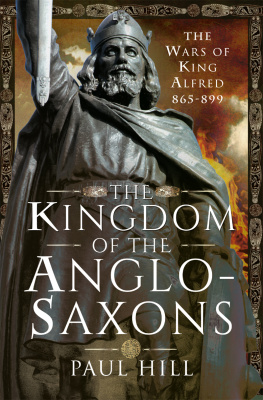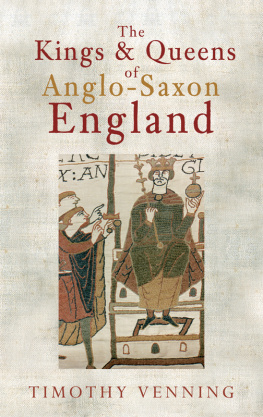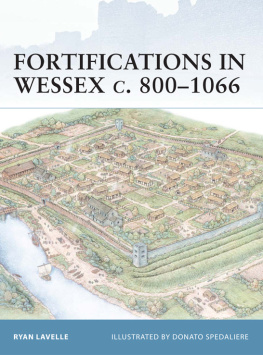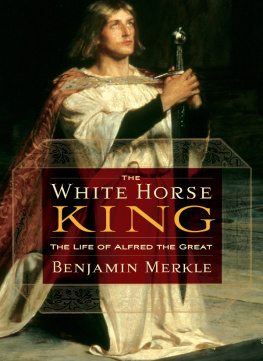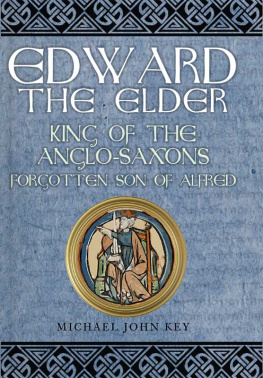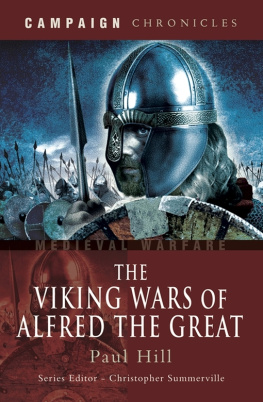THE PALE HORSEMAN
Bernard Cornwell

THE PALE HORSEMAN
is for
George MacDonald Fraser,
in admiration.
Ac her for bera; fugelas singa, gylle grghama.
For here starts war, carrion birds sing,
and gray wolves howl.
(From The Fight at Finnsburh )
T he spelling of place-names in Anglo-Saxon England was an uncertain business, with no consistency and no agreement even about the name itself. Thus London was variously rendered as Lundonia, Lundenberg, Lundenne, Lundene, Lundenwic, Lundenceaster, and Lundres. Doubtless some readers will prefer other versions of the names listed below, but I have usually employed whichever spelling is cited in the Oxford Dictionary of English Place-Names for the years nearest or contained within Alfreds reign, A . D . 871899, but even that solution is not foolproof. Hayling Island, in 956, was written as both Heilincigae and Hglingaigg. Nor have I been consistent myself; I use England instead of Englaland, and have preferred the modern form Northumbria to Norhymbralond to avoid the suggestion that the boundaries of the ancient kingdom coincide with those of the modern county. So this list, like the spellings themselves, is capricious.
scs Hill | Ashdown, Berkshire |
theling Aeg | Athelney, Somerset |
Afen | River Avon, Wiltshire |
Andefera | Andover, Wiltshire |
Baum (pronounced Bathum) | Bath, Avon |
Bebbanburg | Bamburgh Castle, Northumberland |
Brant | Brent Knoll, Somerset |
Bru | River Brue, Somerset |
Cippanhamm | Chippenham, Wiltshire |
Cracgelad | Cricklade, Wiltshire |
Cridianton | Crediton, Devon |
Cynuit | Cynuit Hillfort, near Cannington, Somerset |
Contwaraburg | Canterbury, Kent |
Cornwalum | Cornwall |
Drentmora | Dartmoor, Devon |
Defereal | Kingston Deverill, Wiltshire |
Defnascir | Devonshire |
Dornwaraceaster | Dorchester, Dorset |
Dreyndynas | Fort of thorns, fictional, set in Cornwall |
Dunholm | Durham, County Durham |
Dyfed | Southwest Wales, mostly now Pembrokeshire |
Dyflin | Dublin, Eire |
Eoferwic | York (also the Danish Jorvic, pronounced Yorvik) |
Ethandun | Edington, Wiltshire |
Exanceaster | Exeter, Devon |
Exanmynster | Exminster, Devon |
Gewsc | The Wash |
Gifle | Yeovil, Somerset |
Gleawecestre | Gloucester, Gloucestershire |
Glwysing | Welsh kingdom, approximately Glamorgan and Gwent |
Hamptonscir | Hampshire |
Hamtun | Southampton, Hampshire |
Lindisfarena | Lindisfarne (Holy Island), Northumberland |
Lundene | London |
Lundi | Lundy Island, Devon |
Mrlebeorg | Marlborough, Wiltshire |
Ocmundtun | Okehampton, Devon |
Palfleot | Pawlett, Somerset |
Pedredan | River Parrett |
Penwith | Lands End, Cornwall |
Readingum | Reading, Berkshire |
Sfern | River Severn |
Sceapig | Isle of Sheppey, Kent |
Scireburnan | Sherborne, Dorset |
Sillans | The Scilly Isles |
Soppan Byrg | Chipping Sodbury, Gloucestershire |
Sumorste | Somerset |
Suth Seaxa | Sussex (South Saxons) |
Tamur | River Tamar |
Temes | River Thames |
Thon | River Tone, Somerset |
Thornsta | Dorset |
Uisc | River Exe |
Werham | Wareham, Dorset |
Wilig | River Wylye |
Wiltunscir | Wiltshire |
Winburnan | Wimborne Minster, Dorset |
Wintanceaster | Winchester, Hampshire |
T hese days I look at twenty-year-olds and think they are pathetically young, scarcely weaned from their mothers tits, but when I was twenty I considered myself a full-grown man. I had fathered a child, fought in the shield wall, and was loath to take advice from anyone. In short I was arrogant, stupid, and headstrong. Which is why, after our victory at Cynuit, I did the wrong thing.
We had fought the Danes beside the ocean, where the river runs from the great swamp and the Sfern Sea slaps on a muddy shore, and there we had beaten them. We had made a great slaughter and I, Uhtred of Bebbanburg, had done my part. More than my part, for at the battles end, when the great Ubba Lothbrokson, most feared of all the Danish leaders, had carved into our shield wall with his great war ax, I had faced him, beaten him, and sent him to join the einherjar, that army of the dead who feast and swive in Odins corpse hall.
What I should have done then, what Leofric told me to do, was ride hard to Exanceaster where Alfred, King of the West Saxons, was besieging Guthrum. I should have arrived deep in the night, woken the king from his sleep, and laid Ubbas battle banner of the black raven and Ubbas great war ax, its blade still crusted with blood, at Alfreds feet. I should have given the king the good news that the Danish army was beaten, that the few survivors had taken to their dragon-headed ships, that Wessex was safe, and that I, Uhtred of Bebbanburg, had achieved all of those things.
Instead I rode to find my wife and child.
At twenty years old I would rather have been plowing Mildrith than reaping the rewards of my good fortune, and that is what I did wrong, but, looking back, I have few regrets. Fate is inexorable, and Mildrith, though I had not wanted to marry her and though I came to detest her, was a lovely field to plow.
So, in that late spring of the year 877, I spent the Saturday riding to Cridianton instead of going to Alfred. I took twenty men with me and I promised Leofric that we would be at Exanceaster by midday on Sunday and I would make certain Alfred knew we had won his battle and saved his kingdom.
Odda the Younger will be there by now, Leofric warned me. Leofric was almost twice my age, a warrior hardened by years of fighting the Danes. Did you hear me? he asked when I said nothing.


